The IAFSS Committee welcome bids for the 15th IAFSS Symposium, to be held in Europe in 2026.
Selection of the host for the symposium will be made by the new Management Committee at its April meeting, which will be associated with the virtual 13th IAFSS Symposium organized and hosted by the University of Waterloo. An exact date will be defined and communicated by those sending in a bid.
If you are interested in hosting the 15th IAFSS Symposium please click here for further information.
13th IAFSS Symposium Poster Deadline – January 30
Poster submissions have re-opened on Easy Chair for the 13th IAFSS Symposium. Final poster submission (NEW contributions): January 30, 2021. Read more here: https://uwaterloo.ca/international-symposium-on-fire-safety-science/
In light of developments related to the coronavirus (COVID-19), and the need to protect our own and extended communities, the Symposium Planning Committee, in consultation with the IAFSS Executive and Management Committees, has decided that the 13th IAFSS Symposium will be an on-line event. Further information can be found on the FAQ webpage.
New IAFSS Working Group on Human Behaviour in Fires
Please visit our Google form to join the working group and sign-up for our first meeting in April 2021.
A new Working Group on Human Behaviour in Fires (HBiF) has recently been established within IAFSS. This group will serve as a coordinating body that monitors, develops and guides research on all aspects of the broad discipline of human behaviour in fire. The primary objective of the group is to achieve measurable, positive impacts on life safety of people in building and outdoor fires, avoid duplication in research efforts across the world and present a unified representative voice for researchers in the field.
The HBiF Working Group will focus on a number of activities; e.g., developing:
- a template for HBiF data collection and reporting,
- guidelines for ethical research when studying human behaviour in fire
- a research roadmap for the discipline of human behaviour in fire
- a webpage containing resources for interested stakeholders
- a glossary of terms for the field
- authoritative guidelines for verification and validation (V&V) of computer evacuation models
If you are interested in joining this group, please use this Google form to sign up.
On the Google form, you will also be asked if you are interested in attending our first working group meeting, which will take place as part of the 13th IAFSS Symposium in April 2021. At this meeting, we will establish a prioritized list of short-term and long-term activities, associated timescales and deliverables and assign activity leaders. Please plan to attend and provide your input on working group priorities!
We hope that you can join us in our efforts to increase the safety of people in buildings and outdoor fires around the world!
IAFSS Management Committee Election Closing Nov. 30
This is a reminder that the election period for the 2021-2023 IAFSS Management Committee is open from 1 October – 30 November 2020. Each member (paid as of 31 March 2020) is eligible to vote. The voting is being conducted using SurveyMonkey, not IAFSS, so please check your ‘junk’ folder for the email which was sent from [email protected] via SurveyMonkey [email protected]. We have 27 candidates for 24 open positions, so please review the candidate statements and vote for up to 24 persons. If you have any questions or did not receive the email with the link to the vote, please contact the IAFSS Secretariat at [email protected].
IAFSS Symposium Rescheduled to April 26 – April 30, 2021
Following the previous communications on the postponement of the 13th IAFSS Symposium, we are writing to make the announcement that the new dates of the Symposium will be April 26 – April 30, 2021, with workshops to be held on April 24 and 25. The new dates have been selected based on a careful evaluation of many factors, including the situation related to coronavirus spread and control, as well as the availability of the hosting venues. Authors of accepted papers should have recently received detailed instructions related to the publication of the proceedings. For more detailed information related to the change, please refer to ‘Frequently Asked Questions’ on the symposium website (https://uwaterloo.ca/international-symposium-on-fire-safety-science/faq-2), which has been, and will regularly be, updated as information becomes available. Any further questions can be directed to Yi Wang ([email protected]) or Karen Boyce ([email protected]).
Thank you again for all your support and hope to see you in Waterloo in 2021!
Best Regards,
IAFSS Symposium Co-chairs, on behalf of the IAFSS Executive Committee
Margaret McNamee – [email protected]
Arnaud Trouvé – [email protected]
IAFSS 2020 Symposium Postponed
Dear IAFSS community:
In light of developments related to the coronavirus (COVID-19), and the need to protect our own and extended communities, IAFSS has taken the difficult decision to postpone the 13th Symposium planned in Waterloo, Canada. The new symposium dates will be announced as soon as possible but are expected to be in the spring of 2021.
If you have already registered for the symposium, you are encouraged to transfer your registration to the new dates. Alternatively, you can choose to cancel with a full refund and re-register at a later date. Detailed instructions will be sent to registered delegates as soon as they are finalized.
Corresponding authors for the papers accepted for presentation will expect to receive a separate email in the near future regarding updates on the publication of such and student awards. The symposium will open for new poster and image submission to allow for more recent research work to be presented. All posters and images which have been accepted to the symposium will be transferred and given opportunity to update.
If you have any questions, please first refer to ‘Frequently Asked Questions’ on the symposium website (https://uwaterloo.ca/international-symposium-on-fire-safety-science/faq-2), which will be regularly updated as information becomes available. Any further questions can be directed to Yi Wang ([email protected]) or Karen Boyce ([email protected]).
We apologize for any inconvenience and thank you for your kind support.
Best Regards,
IAFSS Symposium Co-chairs
on behalf of the IAFSS Executive Committee
Margaret McNamee – [email protected]
Arnaud Trouvé – [email protected]
Fire Safety Science News #44 – February 2020
The February 2020 edition of the IAFSS Newsletter, the official newsletter of the IAFSS is now available.
Summer School on Fire Science at the University of Maryland Announced
The Combustion Institute Summer School on Fire Safety Science at the University of Maryland will bring together graduate students, post-doctoral fellows and early-career researchers and engineers engaged in fire science as well as distinguished instructors from leading higher-education institutions and research programs in fire safety around the world. The summer school will take place on June 8-12 2020 on the campus of the University of Maryland in College Park. The objectives of the summer school are to expose participants to a broad range of advanced topics with a mix between fundamental courses that emphasize the theoretical foundations of the engineering problem and application courses that describe the engineering configurations and emphasize current challenges in the engineering practice. The objectives are also to build a strong international network of graduate students, post-doctoral fellows, early-career researchers, instructors and leading researchers.
The list of courses is organized into two main categories: (1) Fundamental courses that emphasize the theoretical foundations of the engineering problem (combustion science, material science, structural mechanics); and (2) Application courses that describe the engineering configurations and emphasize current challenges in the engineering practice (wildland fires, façade fires, performance-based design, suppression systems).
- Introduction: Introduction to Fire Safety Engineering (E. Weckman, University of Waterloo)
- Fundamentals: Combustion in Fires (B. Merci, Ghent University)
- Fundamentals: Ignition and Flame Spread (S. McAllister, US Forest Service)
- Fundamentals: Pyrolysis (S. Stoliarov, University of Maryland)
- Fundamentals: Radiative Heat Transfer (X. Zhao, University of Connecticut)
- Fundamentals: Soot (P. Sunderland, University of Maryland)
- Applications: Flammability Tests (Y. Wang, FM Global)
- Applications: Façade Fires (M. McLaggan, University of Queensland)
- Applications: Wildland Fires (N. Liu, University of Science and Technology)
- Fundamentals: Smoldering Fires (G. Rein, Imperial College)
- Applications: Wildland-Urban Interface Fires (M. Gollner, University of California at Berkeley)
- Applications: Performance-Based Design (P. van Hees, Lund University)
- Fundamentals: Computational Fire Modeling (A. Trouvé, University of Maryland)
- Workshop on Fire Modeling: ThermaKin (S. Stoliarov, University of Maryland); FDS (A. Trouvé, University of Maryland)
- Applications: Fire Suppression and Industrial Fire Protection (Y. Xin, FM Global)
- Fundamentals: Structural Fire Engineering (L. Bisby, University of Edinburgh)
- Panel Discussion: Current Challenges in Fire Safety Engineering (S. Dorofeev, FM Global; A. Simeoni, Worcester Polytechnic Institute; P. van Hees, Lund University)
Registration
Thanks to the financial support by the Combustion Institute and by the Burgers Program at the University of Maryland, the Combustion Institute Summer School on Fire Safety Science is offered without any registration fee for students from academia and public organizations; students from private organizations are also welcome but depending on final budget numbers, a small fee – approximately $500 – may be requested for their registration. The available budget will cover costs for lodging (shared double rooms), breaks and lunches, and handout material. Participating students are expected to cover the cost of travelling to the University of Maryland; depending on final budget numbers, partial support for travel of participating students from academia may also become available.
Application and important dates
Application material: the application package should be a single file (Microsoft® Word or PDF) that contains:
- A cover letter (up to 2 pages) explaining the applicant’s interest in fire research and his/her motivation for the Combustion Institute Summer School on Fire Safety Science;
- A curriculum vitae (up to 2 pages);
- And for students enrolled in a graduate academic program, a letter of recommendation from the applicant’s academic advisor (up to 2 pages).
Applicants should submit their application package to Professor Arnaud Trouvé: [email protected], with the subject line “Application to the Combustion Institute Summer School on Fire Safety Science”.
Application deadline: February 28, 2020
Final decision: March 7, 2020
Note that for logistic reasons, student participation will be restricted to a maximum group size of 50 students.
Point of contact
Professor Arnaud Trouvé, Department of Fire Protection Engineering, University of Maryland
Phone: 1 (301) 405-8209 or Email: [email protected]
Seminar following the 13th IAFSS
An international dialogue to inform an update to the Canadian total cost of fire will be following the conclusion of IAFSS 2020 in Waterloo. For more information and how to sign up for the event please read the attached invitation.
Poster and Image Submission Instructions for the 13th IAFSS

Research of Interest
The International Association for Fire Safety Science (IAFSS) sponsors the world’s premier symposium for the dissemination and discussion of peer reviewed scientific research focused on the prevention and mitigation of fire losses. As part of the program of the 13th IAFSS Symposium to be held on April 27 – May 1, 2020 at the University of Waterloo, Canada (https://uwaterloo.ca/international-symposium-on-fire-safety-science/), you are invited to submit a poster that advances the basic understanding and presents or advances new ideas on any topic in the entire spectrum of fire safety science.
Poster
Posters will be presented during one or two dedicated sessions to allow authors to exhibit and discuss recently completed work or work in progress, including new and relatively underdeveloped concepts. Students are especially encouraged to submit posters for presentation. The poster session(s) is (are) designed to foster a collegial environment where authors and attendees can discuss their research interests and make or renew relationships to help foster collaboration.
Poster abstracts will be accepted on the basis of their quality and originality in the science of fire safety and its applications. Instructions on submitting poster abstracts can be found here. The material presented in Poster Sessions will not be published in the Proceedings of the 13th IAFSS Symposium. The abstracts of the posters will be posted online by March 23, 2020.
Poster Requirements
- Posters: Must be original work.
- Abstracts: Are limited to 1 page maximum.
- Style: All posters and poster abstracts must be in English and use SI units.
- Display Presentation: Presentation of posters will be made during 1 or 2 dedicated sessions held at the Symposium. Authors will be offered a display board of size 1.2 m × 1.5 m. Authors are expected to be in attendance at their poster during the session.
Poster Review Process
- Poster abstracts will be reviewed by the Program Committee.
- Authors will be notified of the Program Committee’s decision by February 10, 2020.
- Notification may include reviewers’ comments.
Submission of Poster Abstracts for Presentation at the 13th IAFSS Symposium
The submission of Poster Abstracts begins December 20, 2019. The abstracts (one page) must be submitted electronically as a PDF-formatted file through the EasyChair website for the IAFSS Symposium https://easychair.org/my/conference?conf=iafss2020. A Word template for abstracts is available here: Poster Template
Go to: https://easychair.org/my/conference?conf=iafss2020. If this is your first access to the EasyChair website, create a new account by clicking “create an account”. If you already have an account (for instance an account that you may have used in past conferences), your name and email address have already been registered with EasyChair. Provide your username and password to login. If you do not know or forgot your login username and password, click “click here” next to “Forgot your password?” and then provide your email address.
Note that you may have multiple roles such as “Track chair”, “Author” or “Subreviewer”. Click “Author” to login as an author. Your role in the Easychair system is shown on the upper left corner of the webpage. You can always change your role by selecting “IAFSS2020” on the top horizontal menu and by clicking “Change role” on the drop-down menu
Select “New Submission” on the top horizontal menu. Select the track relevant to the main topic of your submission. Complete the submission page:
- If asked to choose between different tracks, select the Posters Track
• Check the Terms and Conditions box
• Enter the author(s) information
• Enter the title of the abstract
• Enter keywords (in separate lines)
• Upload the abstract (in PDF format)
• Click on the submit button at the bottom of the page
You should receive a confirmation email from [email protected]. Contact the Poster and Images Co-Chairs if you do not or if you have any question: Jason Floyd ([email protected]) and Tuula Hakkarainen ([email protected]).
Submission deadline for posters is January 30, 2020. Posters submitted after this date will not be considered.
Poster Key dates
- December 20, 2019 – Beginning of submission of Poster Abstracts
- January 30, 2020 – Submission deadline for Poster Abstracts
- February 10, 2020 – Notification of acceptance/rejection of Poster Abstracts
- March 10, 2020 – Submission deadline for full posters on Easychair
- March 23, 2020 – Poster Abstracts posted online
Fire Science Image
Building on previous successes in recent symposia, the program of the 13th IAFSS Symposium will also include a Fire Science Image competition and you are invited to submit an image that may correspond to experimental studies, numerical studies or actual events. Images should be non-commercial. Images will be displayed on a designated display board. Images should be between A5 (148 mm x 210 mm) and A4 (210 mm x 297 mm) in size.
Images Review Process
- Images will be reviewed by the Poster and Images Program Committee.
- Submitters will be notified of the Poster and Images Program Committee’s decision by February 17, 2020.
Submitting Your Image
Images can be submitted through the EasyChair website for the IAFSS Symposium https://easychair.org/my/conference?conf=iafss2020, similar to poster abstracts (see instructions above).
- Images and captions should be submitted electronically beginning December 20, 2019. The image format should be jpg, png, or bmp. The maximum image size for review is 1 Mbyte.
- Submission deadline for images is January 30, 2020. Images submitted after this date will not be considered.
Image Key dates
- December 20, 2019 – Beginning of submission of Images
- January 30, 2020 – Submission deadline for Images
- February 17, 2020 – Notification of acceptance/rejection of Images
Fire Image Competition Requirements
- Images: Must be original work.
- Style: Images may correspond to experimental studies, numerical studies or actual events.
- Caption: A brief figure caption describing the image is expected to accompany the images. Captions are limited to 100 words. The submitter should include name and affiliation with the caption, but this information is not included in the word count.
- Display Presentation: Submitters will be offered a display space, 60 cm wide and 60 cm high, for their image, caption, name and affiliation. The maximum image size is A4 (297 mm x 210 mm). Submitters are not required to be in attendance at their image during the session.
Awards
Posters and images presented at the 13th IAFSS Symposium will be considered for the following Awards:
- Best Poster Award – Awarded to the best poster based on technical content, organization, and visual presentation. The selection will be made by the poster awards committee.
- Best Student Poster Award – Awarded to the best poster by a student author based on technical content, organization, and visual presentation. The selection will be made by the poster awards committee.
- Delegate’s Choice Poster Award – Awarded to the best poster based on technical content, organization, and visual presentation. The selection will be made by the Symposium Delegates.
- Graphic Image Award – Awarded to the best fire image based on originality, scientific significance, and artistic/aesthetic appeal. The selection will be made by the Symposium Delegates.
If you would like more information on either the Poster or Fire Science Image events at the 13th IAFSS Symposium, please contact Dr. Jason Floyd (Email: [email protected]) or Dr. Tuula Hakkarainen (Email: [email protected]).


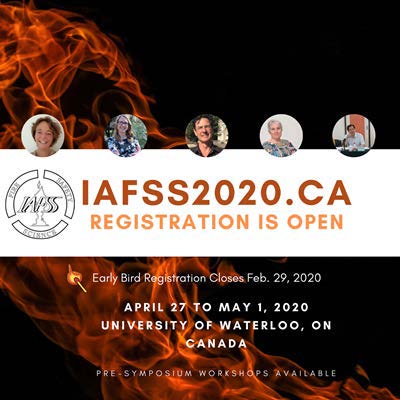
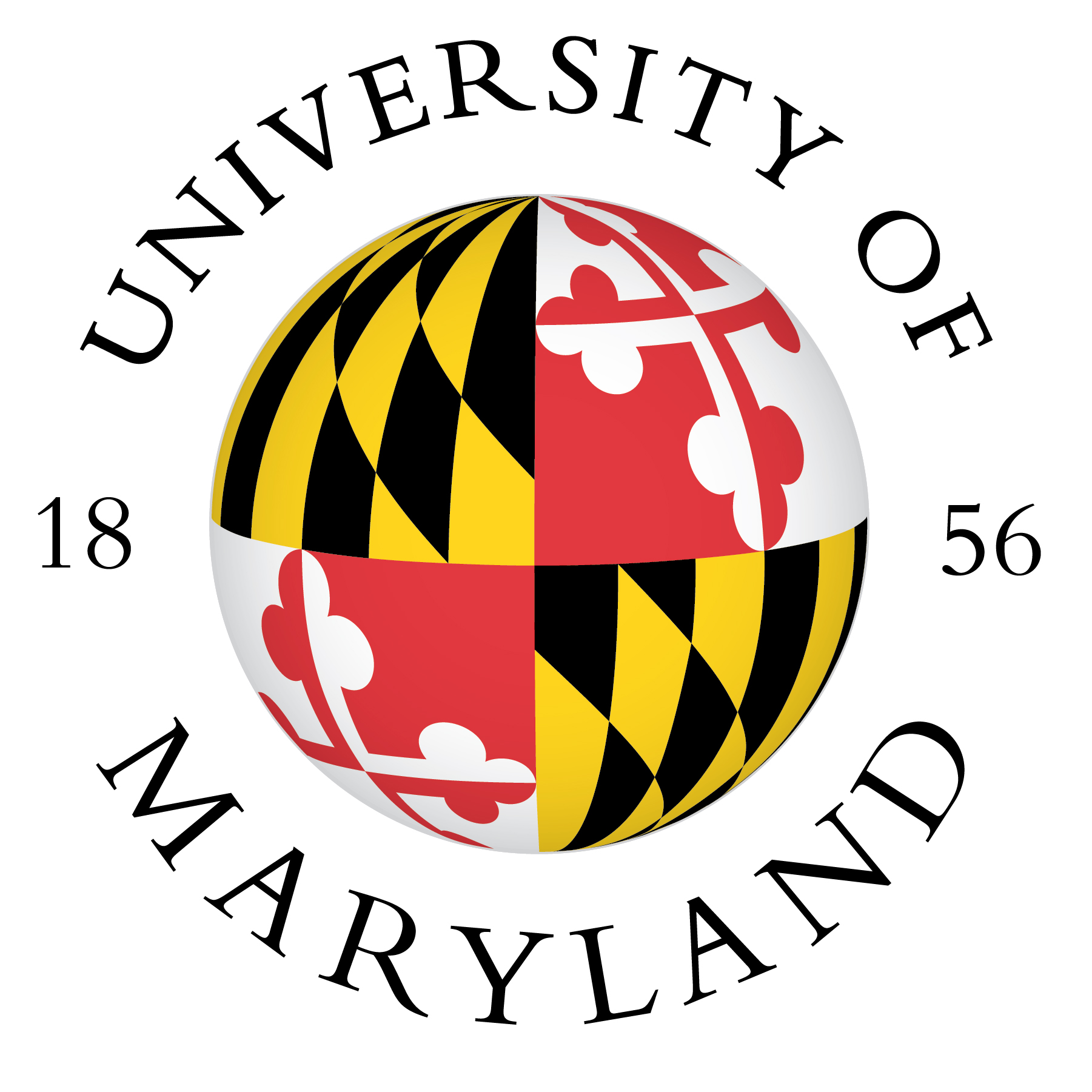
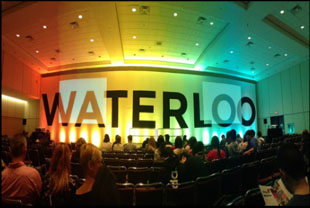
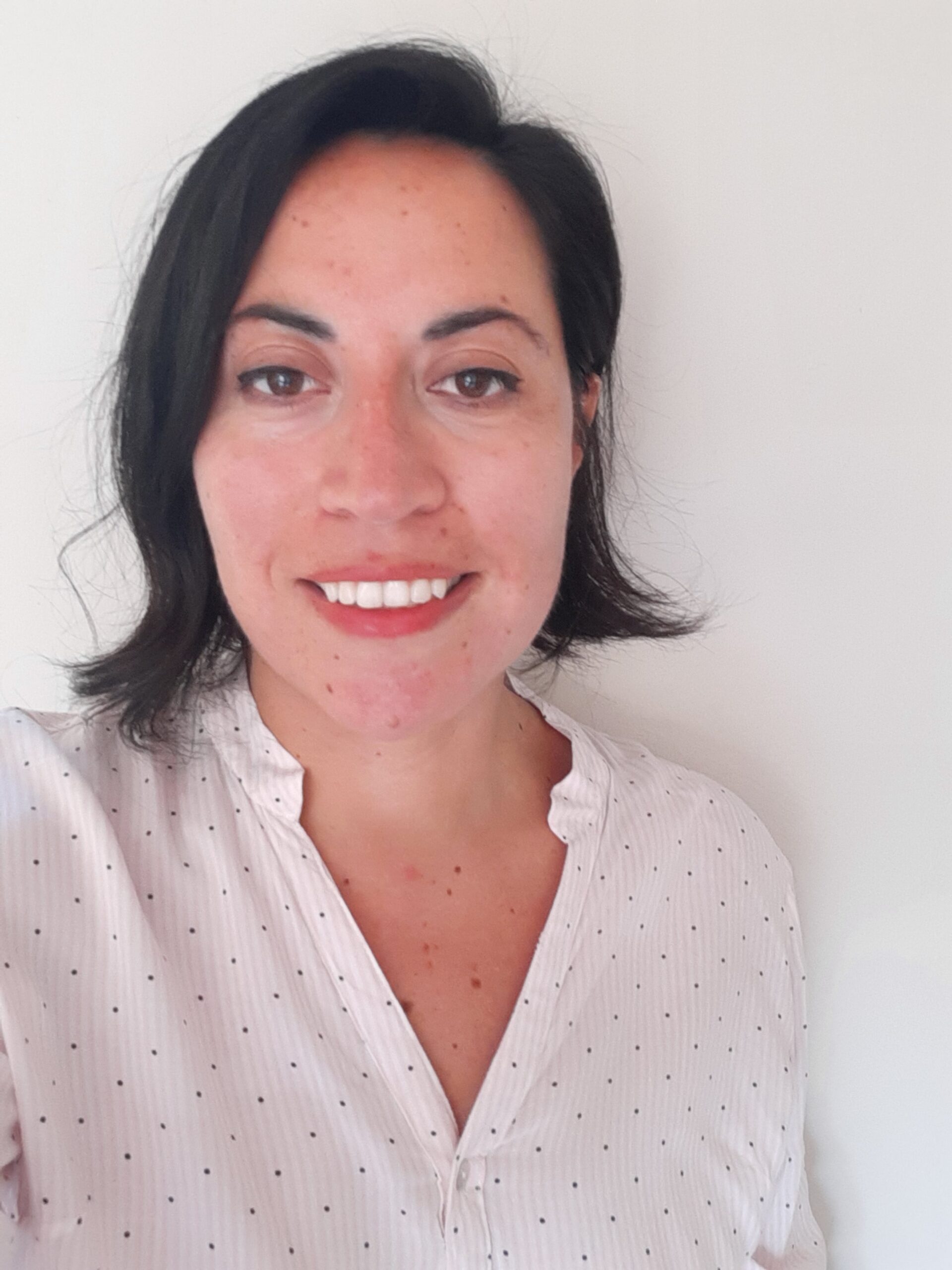 Dr Natalia Flores-Quiroz is a researcher with experience in fire safety engineering. She worked for five years as a fire safety engineer in the mining industry before joining academia. She holds a MSc in fire safety from Ghent University, and her PhD focused on Fire investigations in Informal Settlements. Currently she is a lecturer at Stellenbosch University, where her main research areas are reconstruction of incidents in low-income settlements (i.e., informal settlements, refugee camps) and wildland urban interface (WUI) fires.
Dr Natalia Flores-Quiroz is a researcher with experience in fire safety engineering. She worked for five years as a fire safety engineer in the mining industry before joining academia. She holds a MSc in fire safety from Ghent University, and her PhD focused on Fire investigations in Informal Settlements. Currently she is a lecturer at Stellenbosch University, where her main research areas are reconstruction of incidents in low-income settlements (i.e., informal settlements, refugee camps) and wildland urban interface (WUI) fires.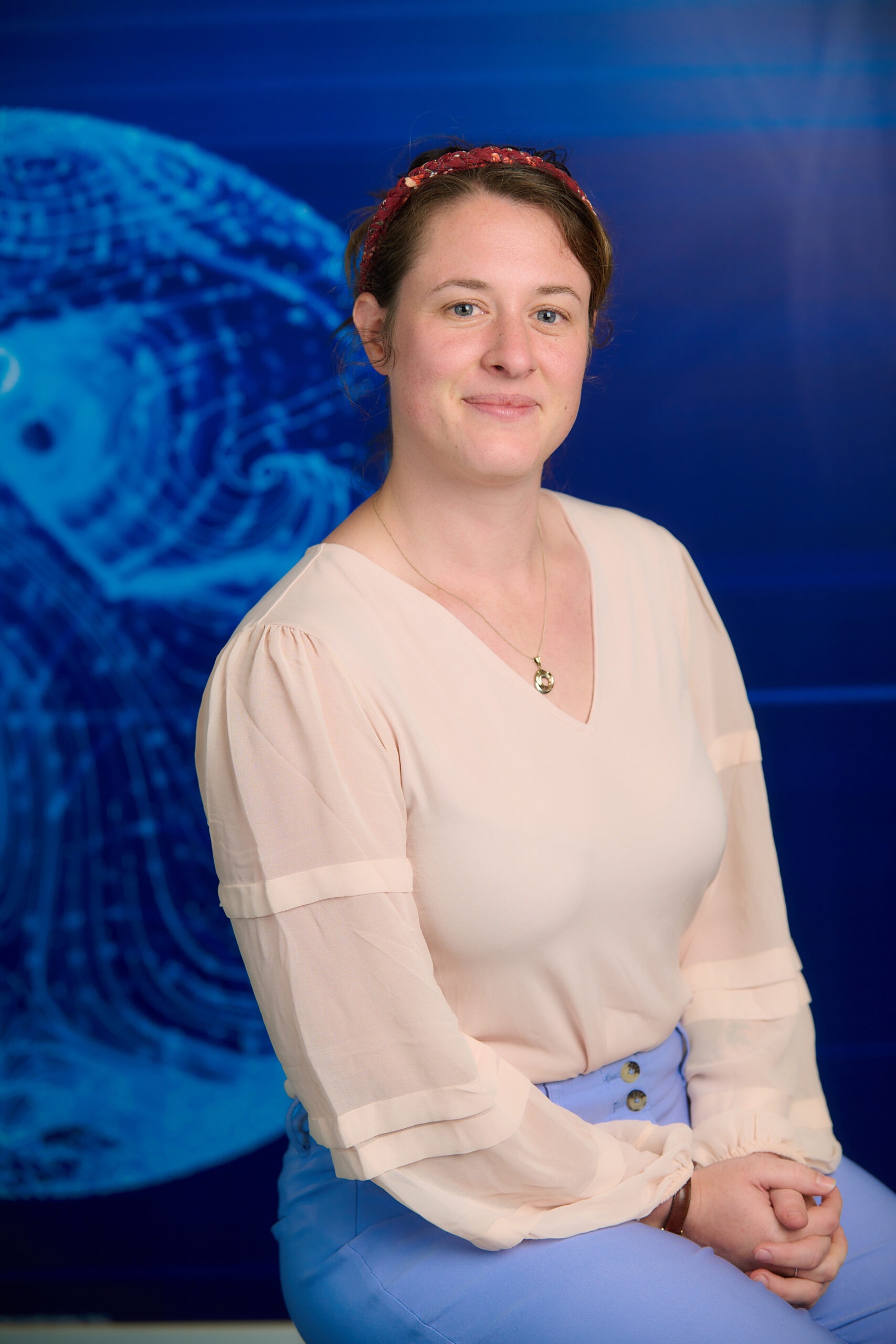 Bronwyn Forrest is a 3rd year PhD student at the University of Waterloo, conducting multi-disciplinary research investigating human physiological response to fire exposure. Bronwyn graduated in 2017 with a BSc. Honours Kinesiology and in 2020 with a MASc. Mechanical & Mechatronics Engineering (Heat Release Rate in Ventilation-Limited Furniture Fires) before merging her two degrees in her PhD research. As a senior graduate student in the Fire Research Group, Bronwyn spear-heads large-scale fire experiments, mentors junior graduate and undergraduate students, and has recently set-up a new ‘human exposure lab’ at the Fire Research Facility where she leads new research in that area. Since her induction into the world of fire science, Bronwyn has grown more and more passionate about the multi-faceted nature of emerging fire safety challenges. Through innovative research, she hopes to make meaningful contributions that help shape changes to fire safety over the course of her career.
Bronwyn Forrest is a 3rd year PhD student at the University of Waterloo, conducting multi-disciplinary research investigating human physiological response to fire exposure. Bronwyn graduated in 2017 with a BSc. Honours Kinesiology and in 2020 with a MASc. Mechanical & Mechatronics Engineering (Heat Release Rate in Ventilation-Limited Furniture Fires) before merging her two degrees in her PhD research. As a senior graduate student in the Fire Research Group, Bronwyn spear-heads large-scale fire experiments, mentors junior graduate and undergraduate students, and has recently set-up a new ‘human exposure lab’ at the Fire Research Facility where she leads new research in that area. Since her induction into the world of fire science, Bronwyn has grown more and more passionate about the multi-faceted nature of emerging fire safety challenges. Through innovative research, she hopes to make meaningful contributions that help shape changes to fire safety over the course of her career.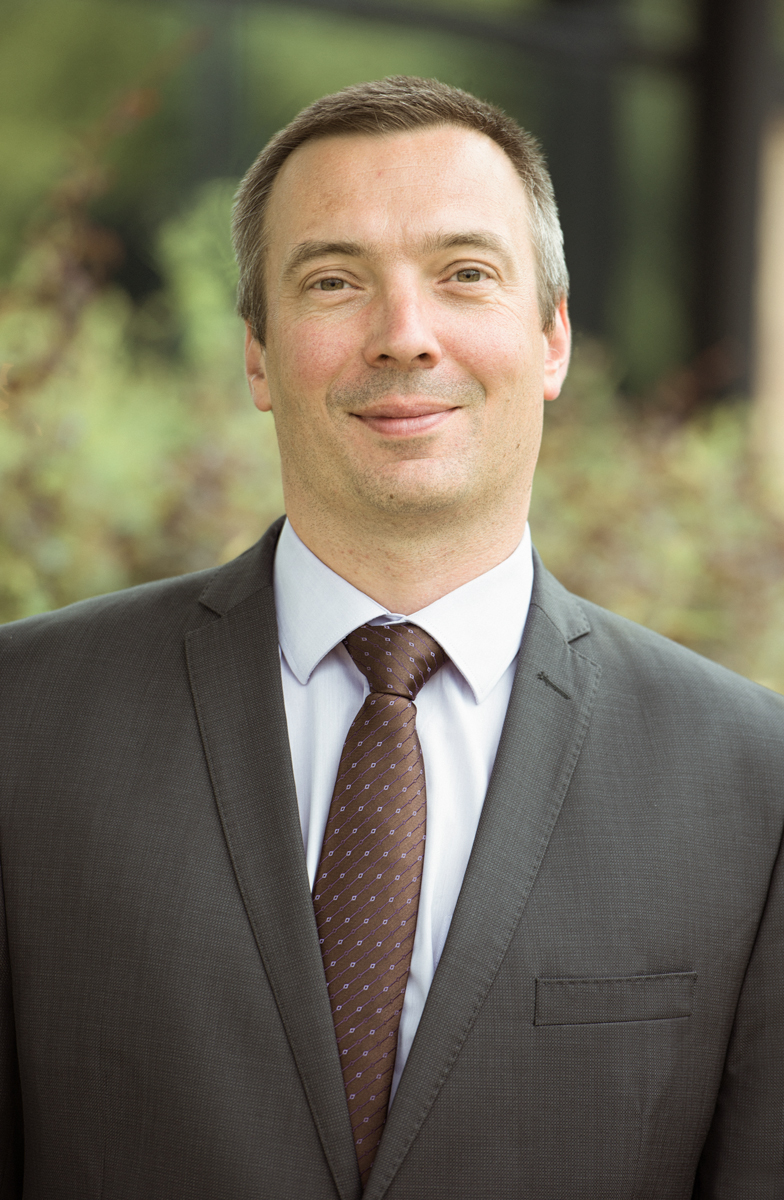 Dr. (HDR) Eric Guillaume has worked in fire sciences since 1998. He formerly led the fire behaviour department of SNCF (French Railway), then changed company in 2005 to join LNE (The French National Laboratory for Testing and Metrology) as head of Fire safety studies department, and later as head of research for whole testing activities of LNE. Nowadays (since 2015), he works for Efectis France, first as Technical Director and more recently as General Manager of the company, leading one of the most important fire testing and fire safety engineering companies in Europe (With approx. 180 people and 28 M€ turnover)
Dr. (HDR) Eric Guillaume has worked in fire sciences since 1998. He formerly led the fire behaviour department of SNCF (French Railway), then changed company in 2005 to join LNE (The French National Laboratory for Testing and Metrology) as head of Fire safety studies department, and later as head of research for whole testing activities of LNE. Nowadays (since 2015), he works for Efectis France, first as Technical Director and more recently as General Manager of the company, leading one of the most important fire testing and fire safety engineering companies in Europe (With approx. 180 people and 28 M€ turnover) Dr. Albert Simeoni is Professor and the Department Head of Fire Protection Engineering at Worcester Polytechnic Institute (WPI). He is the WPI site director of the Wildfire Interdisciplinary Research Center (WIRC), an Industry-University Cooperative Research Center (IUCRC) of the National Science Foundation (NSF) in the United States. Dr. Simeoni has served IAFSS by being chair or co-chair of the Wildland Fire track (2014, 2020 and 2023), Co-chair of the Awards Committee for the Best Thesis Awards (2023), Associate-Editor of Fire Safety Journal (2010-2015), member of the Editorial Board of Fire Safety Journal (since 2016), and Contributing Editor of Fire Safety Science News (since 2011).
Dr. Albert Simeoni is Professor and the Department Head of Fire Protection Engineering at Worcester Polytechnic Institute (WPI). He is the WPI site director of the Wildfire Interdisciplinary Research Center (WIRC), an Industry-University Cooperative Research Center (IUCRC) of the National Science Foundation (NSF) in the United States. Dr. Simeoni has served IAFSS by being chair or co-chair of the Wildland Fire track (2014, 2020 and 2023), Co-chair of the Awards Committee for the Best Thesis Awards (2023), Associate-Editor of Fire Safety Journal (2010-2015), member of the Editorial Board of Fire Safety Journal (since 2016), and Contributing Editor of Fire Safety Science News (since 2011). Brian J. Meacham, PhD, PE (CT&MA), EUR ING, CEng (UK), FIFireE, FSFPE, is the Managing Principal of Meacham Associates. He develops risk-informed performance-based solutions to complex building and infrastructure challenges, provides peer-review services, and undertakes building and fire regulatory system studies. He also conducts research in these areas as well as in sustainable and fire resilient built environments and fire safety technologies. Brian has authored more than 300 publications, given more than 300 presentations and has been awarded more than $4M in research funding. His prior positions include Associate Professor of Fire Protection Engineering at Worcester Polytechnic Institute, Principal at Arup, Technical Director and Research Director at SFPE, and fire safety engineer in Europe and the USA. Brian is Chair of the ICC Performance Code Committee, Chair of the NFPA Technical Committee on Fire Risk Assessment Methods, Immediate Past Chair of the International Association for Fire Safety Science (IAFSS), a Past President of the SFPE, and a past Chair of the Inter-jurisdictional Regulatory Collaboration Committee (IRCC). He is a licensed Professional Engineer in CT and MA, a Chartered Engineer and Fellow of the Institution of Fire Engineers (UK), a registered European Engineer (EUR ING), a Fellow of the SFPE, and a Fulbright Global Scholar.
Brian J. Meacham, PhD, PE (CT&MA), EUR ING, CEng (UK), FIFireE, FSFPE, is the Managing Principal of Meacham Associates. He develops risk-informed performance-based solutions to complex building and infrastructure challenges, provides peer-review services, and undertakes building and fire regulatory system studies. He also conducts research in these areas as well as in sustainable and fire resilient built environments and fire safety technologies. Brian has authored more than 300 publications, given more than 300 presentations and has been awarded more than $4M in research funding. His prior positions include Associate Professor of Fire Protection Engineering at Worcester Polytechnic Institute, Principal at Arup, Technical Director and Research Director at SFPE, and fire safety engineer in Europe and the USA. Brian is Chair of the ICC Performance Code Committee, Chair of the NFPA Technical Committee on Fire Risk Assessment Methods, Immediate Past Chair of the International Association for Fire Safety Science (IAFSS), a Past President of the SFPE, and a past Chair of the Inter-jurisdictional Regulatory Collaboration Committee (IRCC). He is a licensed Professional Engineer in CT and MA, a Chartered Engineer and Fellow of the Institution of Fire Engineers (UK), a registered European Engineer (EUR ING), a Fellow of the SFPE, and a Fulbright Global Scholar.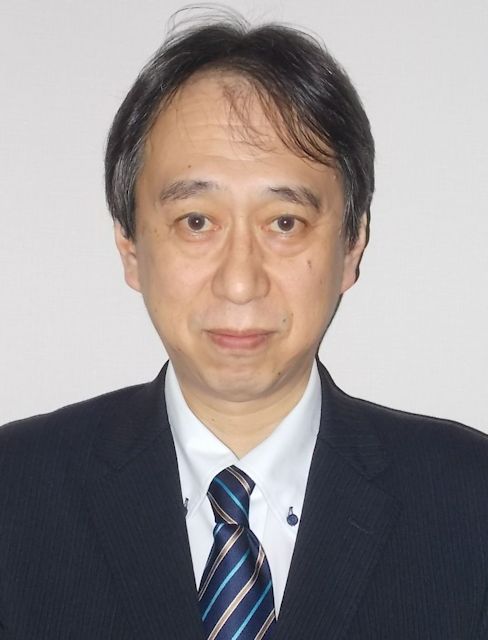 Kazunori Harada is a professor of architecture & architectural engineering at Kyoto University, Japan. He has a career in fire research for over 35 years. He has authored 14 IAFSS symposium papers. His expertise covers the fire resistance of construction materials, smoke movement and control, burning of combustibles in open and compartment, performance-based code & design of buildings and so on. He serves as a vice president of AOAFST, Asia-Oceania Association of Fire Science and Technology. He also serves as the Convenor of ISO/TC92/SC4 WG9, calculation methods for fire safety engineering (FSE), which develops calculation standards concerning FSE.
Kazunori Harada is a professor of architecture & architectural engineering at Kyoto University, Japan. He has a career in fire research for over 35 years. He has authored 14 IAFSS symposium papers. His expertise covers the fire resistance of construction materials, smoke movement and control, burning of combustibles in open and compartment, performance-based code & design of buildings and so on. He serves as a vice president of AOAFST, Asia-Oceania Association of Fire Science and Technology. He also serves as the Convenor of ISO/TC92/SC4 WG9, calculation methods for fire safety engineering (FSE), which develops calculation standards concerning FSE. Dr Xinyan Huang is an Associate Professor at The Hong Kong Polytechnic University and the Deputy Director of the Research Centre for Fire Safety Engineering. He received his PhD from Imperial College London, MSc from UC San Diego, and BEng from Southeast University, and was a Postdoc at UC Berkeley. Dr Huang is a Combustion Scientist and a Fire Safety Engineer who has co-authored over 200 journal papers. He is an Associate Editor of Fire Technology and International Journal of Wildland Fire, an editorial member of J. Building Engineering, Fire Safety J. and Fire and Materials, a Chartered Building Services and Fire Engineer, a committee member for HK Fire Safety Code, and a Fire Expert for HK High Court. He receives the NSFC Excellent Young Scientists Fund, Bernard Lewis Fellowship and Sugden Best Paper Award from Combustion Institute, “5 under 35” and Bono Award from the Society of Fire Protection Engineers (SFPE).
Dr Xinyan Huang is an Associate Professor at The Hong Kong Polytechnic University and the Deputy Director of the Research Centre for Fire Safety Engineering. He received his PhD from Imperial College London, MSc from UC San Diego, and BEng from Southeast University, and was a Postdoc at UC Berkeley. Dr Huang is a Combustion Scientist and a Fire Safety Engineer who has co-authored over 200 journal papers. He is an Associate Editor of Fire Technology and International Journal of Wildland Fire, an editorial member of J. Building Engineering, Fire Safety J. and Fire and Materials, a Chartered Building Services and Fire Engineer, a committee member for HK Fire Safety Code, and a Fire Expert for HK High Court. He receives the NSFC Excellent Young Scientists Fund, Bernard Lewis Fellowship and Sugden Best Paper Award from Combustion Institute, “5 under 35” and Bono Award from the Society of Fire Protection Engineers (SFPE).
 Arnaud Trouvé is Professor and Chair in the Department of Fire Protection Engineering at the University of Maryland in College Park, USA. He joined the Faculty in 2001 with a Ph.D. (1989) and Engineering Degree (1985) from École Centrale of Paris, France, and with previous experience as a combustion research engineer. Professor Trouvé’s research interests include fire modeling and Computational Fluid Dynamics (CFD); application of data assimilation to fire and combustion; and physical modeling of combustion- and fire-related phenomena, including compartment fires, wildland fires and explosions. Professor Trouvé is a Fellow of the Combustion Institute and the recipient of the 2017 FORUM Sjölin Award. He has served on the editorial boards of the Proceedings of the Combustion Institute, Progress in Energy and Combustion Science, Combustion and Flame, and Fire Technology, and is currently on the editorial boards of Combustion Theory and Modelling and the Fire Safety Journal. Professor Trouvé is also a past Chair of the US Eastern States Section of the Combustion Institute (ESSCI) and a past Member of the Executive Board of the International Association for Fire Safety Science (IAFSS). He is a co-Chair of a recent initiative endorsed by IAFSS and called the “IAFSS Working Group on Measurement and Computation of Fire Phenomena” (the MaCFP Working Group) and the past Chair of a new network of leading higher-education institutions and research laboratories in fire safety engineering called the International Fire Safety Consortium (IFSC).
Arnaud Trouvé is Professor and Chair in the Department of Fire Protection Engineering at the University of Maryland in College Park, USA. He joined the Faculty in 2001 with a Ph.D. (1989) and Engineering Degree (1985) from École Centrale of Paris, France, and with previous experience as a combustion research engineer. Professor Trouvé’s research interests include fire modeling and Computational Fluid Dynamics (CFD); application of data assimilation to fire and combustion; and physical modeling of combustion- and fire-related phenomena, including compartment fires, wildland fires and explosions. Professor Trouvé is a Fellow of the Combustion Institute and the recipient of the 2017 FORUM Sjölin Award. He has served on the editorial boards of the Proceedings of the Combustion Institute, Progress in Energy and Combustion Science, Combustion and Flame, and Fire Technology, and is currently on the editorial boards of Combustion Theory and Modelling and the Fire Safety Journal. Professor Trouvé is also a past Chair of the US Eastern States Section of the Combustion Institute (ESSCI) and a past Member of the Executive Board of the International Association for Fire Safety Science (IAFSS). He is a co-Chair of a recent initiative endorsed by IAFSS and called the “IAFSS Working Group on Measurement and Computation of Fire Phenomena” (the MaCFP Working Group) and the past Chair of a new network of leading higher-education institutions and research laboratories in fire safety engineering called the International Fire Safety Consortium (IFSC). Dr Felix Wiesner is an Assistant Professor at the University of British Columbia and study the role of engineered timber in fire safety. I work in the Faculty of Forestry as part of the Wood Science department. My research focus has mostly been experimental, considering fire dynamics in timber compartments and the structural fire capacity of engineered timber products. In addition, I am interested in the performance of timber in exterior building or infrastructure setting. This closely interfaces with wildfire considerations for the wildland urban interface (WUI), especially when it comes to smouldering.
Dr Felix Wiesner is an Assistant Professor at the University of British Columbia and study the role of engineered timber in fire safety. I work in the Faculty of Forestry as part of the Wood Science department. My research focus has mostly been experimental, considering fire dynamics in timber compartments and the structural fire capacity of engineered timber products. In addition, I am interested in the performance of timber in exterior building or infrastructure setting. This closely interfaces with wildfire considerations for the wildland urban interface (WUI), especially when it comes to smouldering.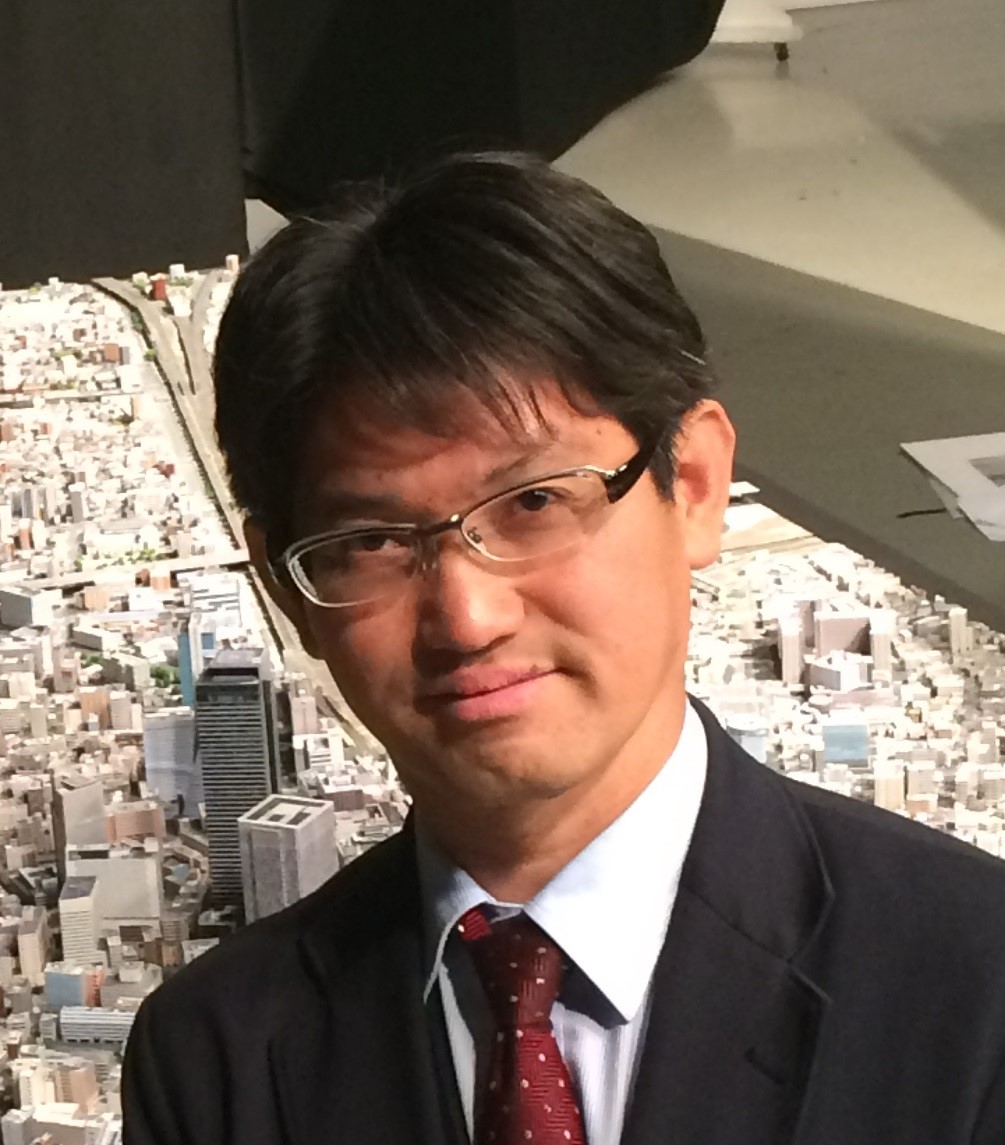 Prof. Yuji Nakamura is Full Professor in Department of Mechanical Engineering, Toyohashi University of Technology (TUT), appointed as Affiliate Full Professor in Center for Fire Science and Technology, Tokyo University of Science (since 2014). He currently serves the Head of Energy Conversion Laboratory and appointed as Department Chair since 2024. Prof. Nakamura has made professional service in Fire Science Community served as Management Committee of IAFSS during 2021-2023, worked as Co-chair of LOC in the most recent IAFSS symposium at Tsukuba, acting Associate Editor of Fire Technology since 2014 and board member of Fire Safety Journal since 2017.
Prof. Yuji Nakamura is Full Professor in Department of Mechanical Engineering, Toyohashi University of Technology (TUT), appointed as Affiliate Full Professor in Center for Fire Science and Technology, Tokyo University of Science (since 2014). He currently serves the Head of Energy Conversion Laboratory and appointed as Department Chair since 2024. Prof. Nakamura has made professional service in Fire Science Community served as Management Committee of IAFSS during 2021-2023, worked as Co-chair of LOC in the most recent IAFSS symposium at Tsukuba, acting Associate Editor of Fire Technology since 2014 and board member of Fire Safety Journal since 2017. ROGAUME Thomas is an Professor at the University of Poitiers – Pprime Institute (UPR3346 CNRS), FRANCE.
ROGAUME Thomas is an Professor at the University of Poitiers – Pprime Institute (UPR3346 CNRS), FRANCE. Yu Wang is a professor at the State Key Laboratory of Fire Science, University of Science and Technology of China (USTC). He got joint Ph.D. from USTC and the City University of Hong Kong in 2016 and had working experience at the University of Edinburgh, Worcester Polytechnic Institute and National University of Singapore before returning to China in 2020. His primary research areas are high-rise building fire and large outdoor fire. Yu has published over 50 SCI journal papers, and is currently an Associate Editor in Fire Technology and Editorial Board Member in Fire Safety Journal. He initiated the first English fire course at USTC, Introduction of Fire Dynamics, reported by China News and People’s Daily Online (over 260,000 audiences). In recent years, he has received SFPE Global 5 Under 35 Award, Youth May Fourth Medal (Anhui Province), Young Faculty Career Award (USTCAF), and some Best Paper/Presentation/Poster/Image Awards in IAFSS or AOSFST.
Yu Wang is a professor at the State Key Laboratory of Fire Science, University of Science and Technology of China (USTC). He got joint Ph.D. from USTC and the City University of Hong Kong in 2016 and had working experience at the University of Edinburgh, Worcester Polytechnic Institute and National University of Singapore before returning to China in 2020. His primary research areas are high-rise building fire and large outdoor fire. Yu has published over 50 SCI journal papers, and is currently an Associate Editor in Fire Technology and Editorial Board Member in Fire Safety Journal. He initiated the first English fire course at USTC, Introduction of Fire Dynamics, reported by China News and People’s Daily Online (over 260,000 audiences). In recent years, he has received SFPE Global 5 Under 35 Award, Youth May Fourth Medal (Anhui Province), Young Faculty Career Award (USTCAF), and some Best Paper/Presentation/Poster/Image Awards in IAFSS or AOSFST. Brian Lattimer, Ph.D. is a Professor in Mechanical Engineering at Virginia Tech where he performs experimental and computational research on fire safety and disaster resilience. He has nearly 30 years of experience in fire related research. His research areas include material behavior in fires, fire dynamics, suppression agents, heat transfer from fires to surfaces, structural response during fire, and firefighting technology.
Brian Lattimer, Ph.D. is a Professor in Mechanical Engineering at Virginia Tech where he performs experimental and computational research on fire safety and disaster resilience. He has nearly 30 years of experience in fire related research. His research areas include material behavior in fires, fire dynamics, suppression agents, heat transfer from fires to surfaces, structural response during fire, and firefighting technology.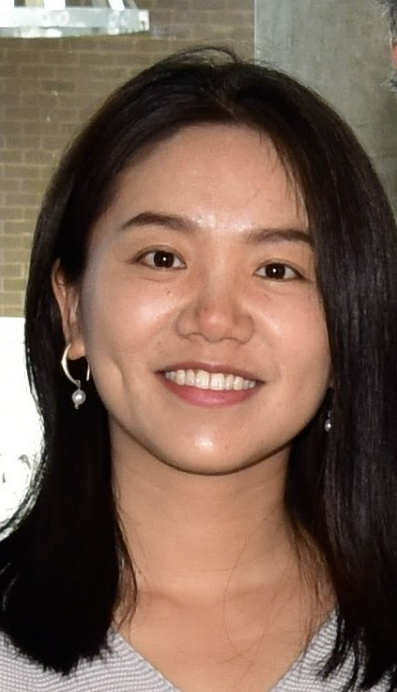 Dr. Shuna Ni is an Assistant Professor in the Department of Fire Protection Engineering at the University of Maryland, College Park. She received her Ph.D. degree at Texas A&M University in 2018 and her Master’s degree at Tongji University in 2013. Dr. Ni’s research focuses on fire forensics, structural fire engineering, WUI fire resilience, fire safety of tall mass-timber buildings and fire-related multiple hazards. Her research has been funded by National Science Foundation, National Institute of Justice, Fire Protection Research Foundation, University Transportation Centers under the Department of Transportation, Grand Challenges Grants Program at the University of Maryland and industrial partners.
Dr. Shuna Ni is an Assistant Professor in the Department of Fire Protection Engineering at the University of Maryland, College Park. She received her Ph.D. degree at Texas A&M University in 2018 and her Master’s degree at Tongji University in 2013. Dr. Ni’s research focuses on fire forensics, structural fire engineering, WUI fire resilience, fire safety of tall mass-timber buildings and fire-related multiple hazards. Her research has been funded by National Science Foundation, National Institute of Justice, Fire Protection Research Foundation, University Transportation Centers under the Department of Transportation, Grand Challenges Grants Program at the University of Maryland and industrial partners.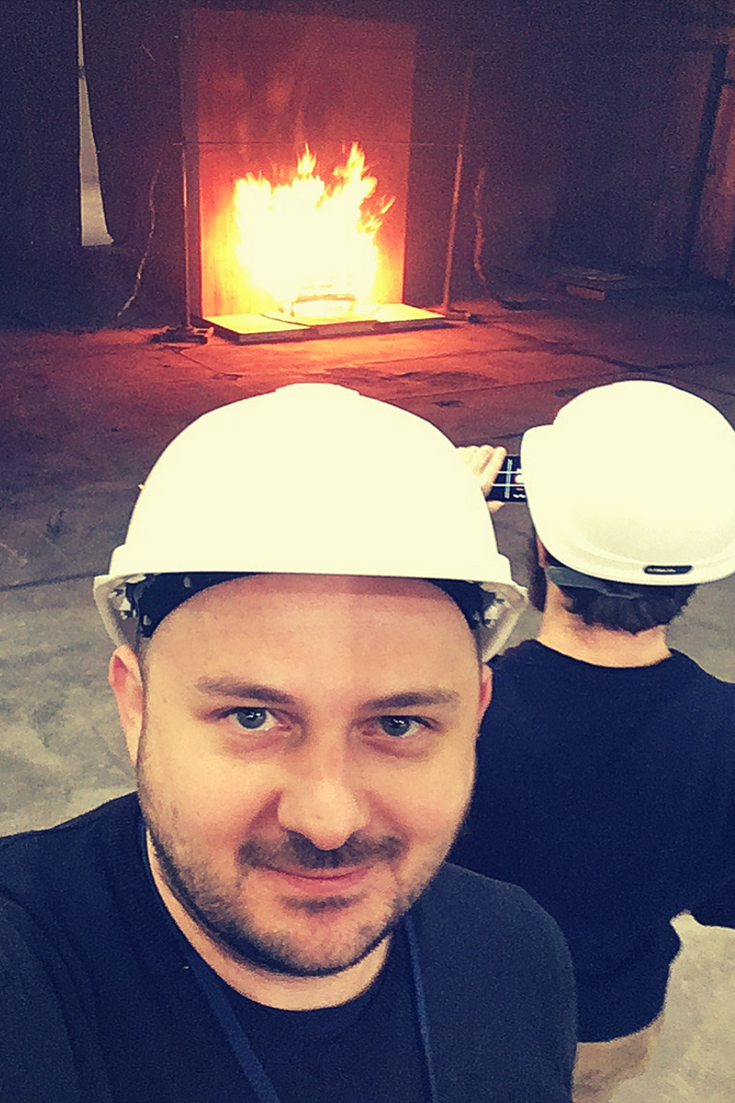 Dr Wojciech Węgrzyński is with ITB, that is the Polish Building Research Institute in Warsaw. He currently holds the position of the Deputy Head of Fire Research Department and the Professor of the Institute, and a Director at SFPE Europe. He is the Author of 40 peer-reviewed papers published in all of the primary FSE journals. His main area of interest is the fundamentals of compartment fire dynamics and standardized fire testing, and also: use of computational fluid dynamics in fire, wind and fire interaction and evaluation of the effects of the spread of smoke in buildings. His research is focused on the impact of the architectural context of the building on the smoke control performance, as well as finding solutions to make the smoke exhaust systems cheaper and more efficient. Member of the Sub-committee for Research of the IAFSS. 2018 NFPA Harry C. Bigglestone Award Recipient; 2019 Jack Watts Award Recipient; 2020 SFPE 5 Under 35 Award Recipient. Member of Editorial Board of ‘Fire Technology. Hosts a fire podcast at
Dr Wojciech Węgrzyński is with ITB, that is the Polish Building Research Institute in Warsaw. He currently holds the position of the Deputy Head of Fire Research Department and the Professor of the Institute, and a Director at SFPE Europe. He is the Author of 40 peer-reviewed papers published in all of the primary FSE journals. His main area of interest is the fundamentals of compartment fire dynamics and standardized fire testing, and also: use of computational fluid dynamics in fire, wind and fire interaction and evaluation of the effects of the spread of smoke in buildings. His research is focused on the impact of the architectural context of the building on the smoke control performance, as well as finding solutions to make the smoke exhaust systems cheaper and more efficient. Member of the Sub-committee for Research of the IAFSS. 2018 NFPA Harry C. Bigglestone Award Recipient; 2019 Jack Watts Award Recipient; 2020 SFPE 5 Under 35 Award Recipient. Member of Editorial Board of ‘Fire Technology. Hosts a fire podcast at  Jennifer Wen is currently Professor of Energy Resilience in the School of Mechanical Engineering Sciences, University of Surrey as Professor. Previously, Jennifer held positions at Computational Dynamics Limited (founding vendor of STAR-CCM), British Gas plc, South Bank University, Kingston University London, and University of Warwick. She is a Fellow of the Institution of Mechanical Engineers and Vice-Chair for Research for the International Association for Fire Safety Science. Jennifer is also a member and sub-task leader of the European Safety Panel on Hydrogen Safety (EHSP) established by the Fuel Cell and Hydrogen Joint Undertaking (now Clean Hydrogen Partnership) of the European Commission. She is an Associate Editor for the Proceedings of the Combustion Institute.
Jennifer Wen is currently Professor of Energy Resilience in the School of Mechanical Engineering Sciences, University of Surrey as Professor. Previously, Jennifer held positions at Computational Dynamics Limited (founding vendor of STAR-CCM), British Gas plc, South Bank University, Kingston University London, and University of Warwick. She is a Fellow of the Institution of Mechanical Engineers and Vice-Chair for Research for the International Association for Fire Safety Science. Jennifer is also a member and sub-task leader of the European Safety Panel on Hydrogen Safety (EHSP) established by the Fuel Cell and Hydrogen Joint Undertaking (now Clean Hydrogen Partnership) of the European Commission. She is an Associate Editor for the Proceedings of the Combustion Institute. Enrico Ronchi is an Associate Professor at Lund University, Sweden. His research and education activities are focused on evacuation and human behaviour in case of building fires and wildfires. His work has been published in over 150 publications (including >90 peer-reviewed journal papers). He is currently Associate Editor for the journals Fire Technology and Safety Science and member of the editorial board of the Fire Safety Journal.
Enrico Ronchi is an Associate Professor at Lund University, Sweden. His research and education activities are focused on evacuation and human behaviour in case of building fires and wildfires. His work has been published in over 150 publications (including >90 peer-reviewed journal papers). He is currently Associate Editor for the journals Fire Technology and Safety Science and member of the editorial board of the Fire Safety Journal.